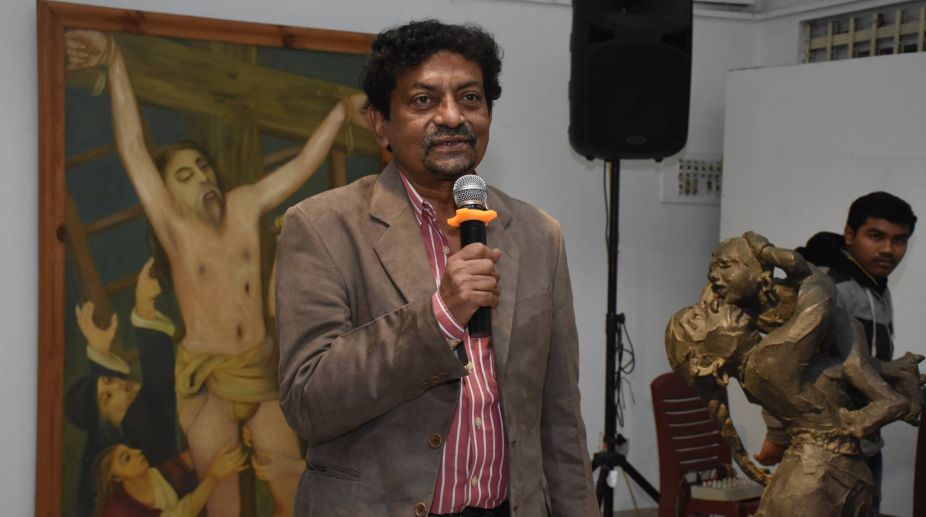Renowned film director Goutam Ghosh says a gallery should permanently showcase the history and evolution of Bengali films as it has not been chronicled properly.
As a part of the initiative, the recent exhibition at the Kolkata International Film Festival 2017, showcasing vintage cameras and other studio equipment used in Bengali cinema along with other archival materials should be permanently kept in a prominent gallery, Ghosh suggested.
“The proposed exhibition will show how our films evolved over the years but a lot more needs to be done,” the ‘Sankhachil’ director said adding he will talk to the state government about it.
There should also be consistent research to track the entire history of Bengali cinema for the authentic documentation of films made in the last century, Ghosh said at the launch of a platform ‘Bangla Cinema 100’, yesterday evening.
Ghosh said on the 100th year of Indian cinema in 2013, the Ministry of Culture had restored 80-100 Indian films digitally, “which also included three-four films of mine.”
However, if one focused entirely on Bengali cinema of the past 100 years, negatives of several important Bengali films have been damaged, he said.
Ghosh urged both corporate houses and the state government to finance the preservation of the existing films as the proper and organized documentation of Bengali cinema could break misconceptions such as the prevalent view that film society movement had begun in Kolkata in 1948-49.
“Nobody talks about the first Film Society set up by Charu Roy in 1930s”, he said adding there were many such instances.
Ghosh said the shrinking of Bengali film market post-Partition in 1947, also needed to be chronicled “as any documentation of film history cannot be complete without recording the social history of the period.”
The director who launched the campaign ‘Bangla Cinema 100 (1917-2017) in the presence of actor Prosenjit Chatterjee and Ranjit Malick, said “We will urge the state government to help in the mammoth work of documenting the entire history of Bengali cinema.”
“While films like ‘Pather Panchali’ (1955) or ‘Meghe Dhaka Tara (1960) certainly form a milestone n the history of Bengali cinema, there are many other works … that need to be recognised as well before it becomes too late,” he said.











